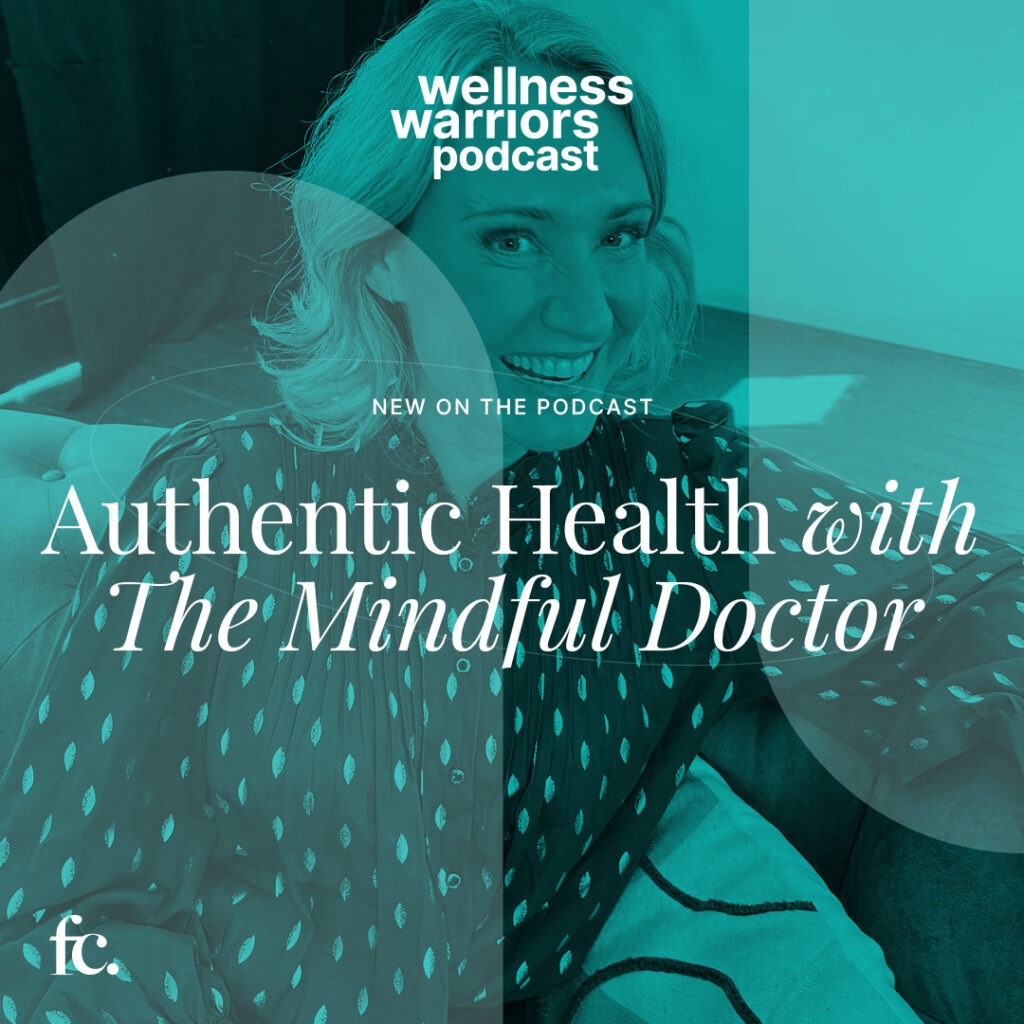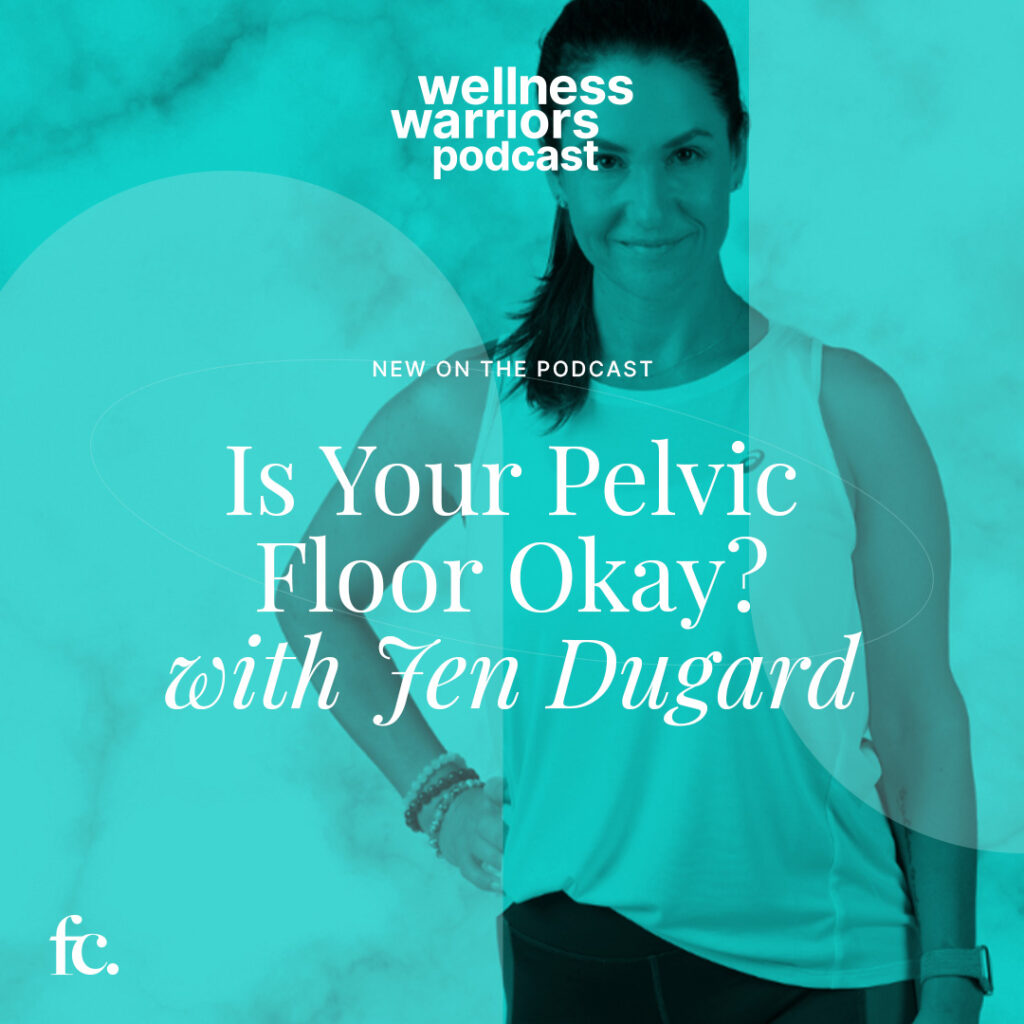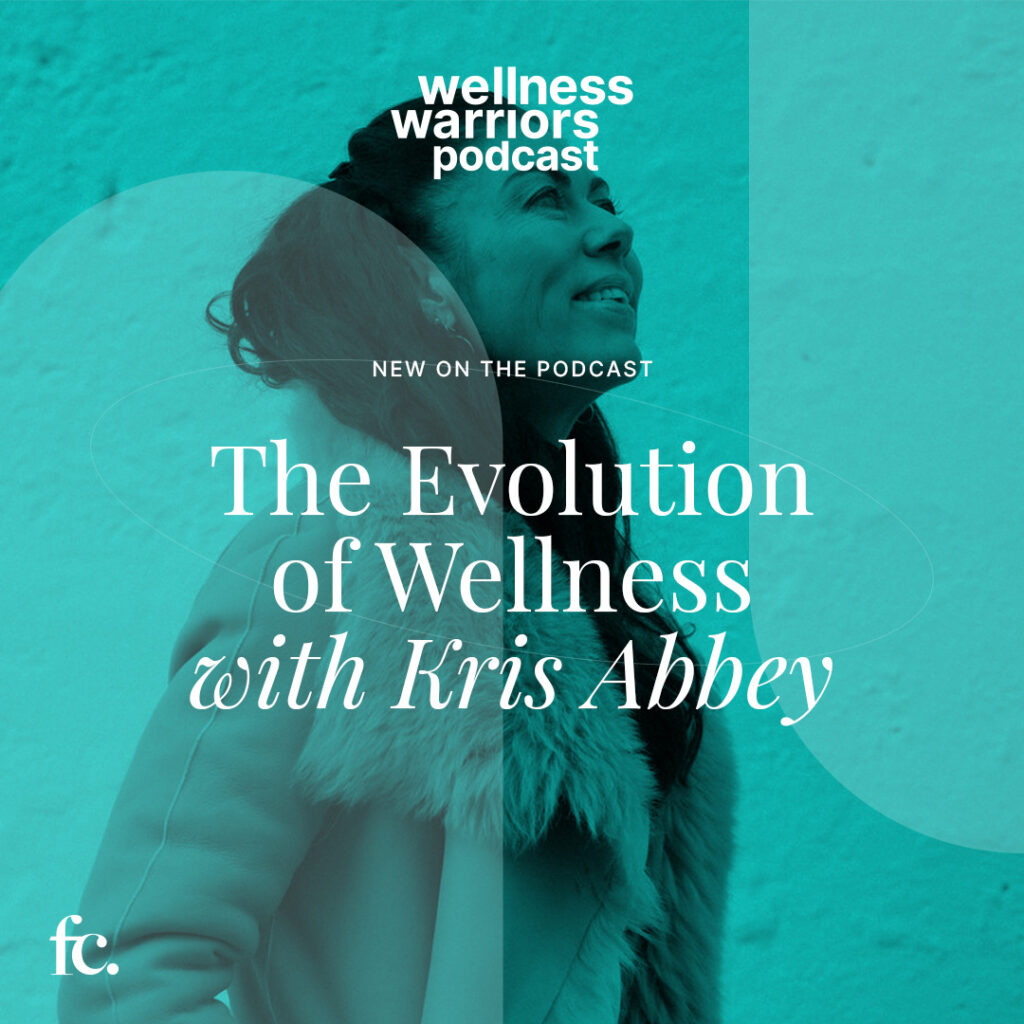Power of Habits - Breaking, Changing & Creating with
Habit Scientist Dr Gina Cleo
Dr Gina Cleo has a PhD in habit change and is a Senior Postdoctoral Research Fellow at Bond University. She also holds a Bachelor in Health Sciences with a double major in Biomedical & Sport Science & a Masters of Nutrition and Dietetics. As a dietitian, and having worked in clinics and hospitals, Gina’s passion for wellbeing extends beyond just what we eat; rather she has dedicated her career to helping people understand their habits and how small consistent steps impact long-term health and wellbeing. Her research has been published in medical journals globally and she has appeared for over 150 news outlets including many of Australia’s major television networks and has featured in numerous publications.
In this episode, Gina breaks down those myths surrounding habit change and goes into depth about the three components of a habit, which include, trigger, routine, and reward. Gina now has the honour of running the Habit Change Institute where she teaches evidence-based strategies for achieving long-term, success through the power of habits, from breaking old habits to forming new habits and understanding motivation. With all the big lifestyle changes we have recently undergone, now is a great time to create those new healthy habits.
If you’re interested to learn more about changing habits and keen to get certified as a habit practitioner, visit https://www.habitchangeinstitute.com/ to know more.

Show Notes:
Felicity – What originally took you into the world of dietetics and, where did that idea come from?
1:35 – Both my grandparents had type 2 diabetes, and back then there was not much research or support around what they could and couldn’t eat which I have witnessed first-hand their struggles navigating through that. Because I wanted to help and understand more what they were going through I decided to become a dietitian. At the time I didn’t know what I wanted to do, until walking along the beach with a friend who mentioned an article she read by a dietitian and that’s when I had my lightbulb moment, a week later I had registered at university and got my degree. Since then I have worked in various hospitals and private practices.
Felicity – What are some of the best things that you learned when you were practising as a dietitian, as opposed to maybe some of the worst things that you saw?
2:31 – I certainly learned that we don’t just eat when we’re hungry and that there are many different reasons why we do eat which is a personal and vulnerable conversation. That’s why I create close and safe relationships with my patients, it’s about building that rapport with them and understanding the why and the how rather than what they are eating and giving them a standard meal plan. People often don’t realise what they’re eating, how much they’re eating, or even if they’re hungry or not at the time.
Felicity – What about in a hospital setting that must’ve been a real eye-opening experience for you to see how we look after patients in a hospital environment. What are some of the things that you felt were important or that you would’ve liked to have changed in that environment?
4:06 – It’s a unique environment as a dietitian as you’re limited to what you can and can’t do, what resources you have and sometimes it’s simply life or death. For example, someone in ICU (intensive care unit) may need to be tube-fed, so it comes down to a numbers game rather than a holistic approach.
Felicity – From dietetics and working as a dietitian, you then decided to go on and work in the space of research?
5:13 – It started when I was working at a private practice, and I often found that patients would come back to work on the things that we’d already worked on, and there was a sense of frustration from both them and myself. At first, I thought I was a terrible dietitian but then I started to look at the research about sustainable change leant that 95% of people who lose weight do tend to put it back on in the conventional lifestyle change approach, so I wanted to really focus on longterm change.
Felicity – Breaking that cycle of behaviour and finding something that will be sustainable and permanent, that’s the absolute goal, and what we all want for people is that they don’t have to see themselves as setting themselves up for another failure. So how did you set about starting this research?
7:09 – It started when I noticed that there was a gap missing when it came to long-term sustainable change, and that is when I approached a professor at Bond University as I didn’t know where to start, what to research and was offered a scholarship to get my PhD. For the first three months, I was just reading everything I could and came across some literature about habit change and I was getting really excited because it seemed to be the only proven and evidence-based solution to sustainable successful change. But then I was curious as to why it wasn’t in the mainstream media and in the mainstream clinics. As much as habits impact and influence so much of our day-to-day lives, they’ve only been researched for the past sort of 10 to 15 years. We focus so much on behaviour change and conscious doing, that we’ve kind of neglected the subconscious actions that make up to 80% of our day.
Felicity – What are some of the things that people wanted to look at to change? If they could identify, for example, a bad habit, what were some of the top bad habits that people really wanted to change, but I didn’t know how?
9:04 – Mindless eating like snacking, overeating and sort of the general ones around food. There are some other things you hear about like drinking alcohol and smoking but there’s also habits people wanted to create and implement in their life, often things like exercising and saving more money.
Felicity – Let’s start with, first of all, I’m changing something that people would like to change such as overeating or snacking. What does the process look like and how did you actually develop a programme for those people that will become effective?
9:50 – We actually recruited participants who were interested in losing weight and actually had excess weight to lose and I created two programs that we used. One of them was around forming new healthy habits and the other one was around breaking old habits. With the forming new habits, interestingly, we didn’t talk about diet and exercise at all, the habits were things just to create more mindfulness in somebody’s day, so things like keeping a food diary, actually ticking off the habits that they have done for that day, doing more steps on a day, packing a piece of fruit on their way to work. They weren’t really focusing on actually losing weight, but they were certainly improving their lifestyle. Then the breaking habits program, that one was completely random, it sends you text messages on random days of the week at random times with completely random tasks to do, things like drive a different way to work today, or write a short story or call a long lost friend. Again, nothing to do really with diet and exercise, but because habits feed off each other and one habit links to the next habit, if you can break a cycle of somebody’s day, then you’re also breaking the habits.
Felicity – We are such creatures of habit and setting up those habits, whether they’re bad or good, tend to be so ingrained in our behaviour on a daily basis. What’s the timeframe to change a habit in terms of the research and the literature?
12:17 – I’d love to give you a proper number on how long it takes to change a habit but it depends, there is a range between about 18 days to 254 days. There is a range because it depends on how, how complex the habit that you’re trying to change NS how much you want to change that habit. Also how habitual you are as a person, for someone that is not naturally habitual it might take them a little bit longer to break an old habit that they’ve had. An average number from the literature, it’s about 66 days to change a habit.
Felicity – Here in this environment at WeightLoss Solutions Australia we like to work with patients over a 12 month period because there is a lot of sustainable information that tells us that if we can work with people for 12 months, so if we’ve got 12 months where we can work with a whole multidisciplinary team, then we’re looking at breaking down previous bad habits that have been long-term but also working on establishing new habits.
14:26 – Having 12 months of that kind of accountability and support is a complete game-changer because oftentimes a patient might see a dietitian and they’ll get a meal plan and they’ll follow that for a while and they’ll get good success, but they’re also the patients that might come back because they’ve yo-yo dieted and they’ve put back the weight that they’ve worked so hard to lose. Whereas having that support and that accountability for a year, it’s a beautiful timeframe to really know that these patients have solidified some of the habits, and they’ve also teased out some of the bad habits that they’ve got in their life that they’ve been able to identify. The idea with breaking old habits firstly is to acknowledge and identify that habit and there’s generally a pattern there so if someone can identify that and then identify the action, which is the habit that they’ve got then you can work with it, but telling someone you should stop doing that, it doesn’t work because there’s a trigger behind it, and it’s really the trigger that needs to be addressed.
Felicity – What are some of your key learnings from the research?
16:17 – My key learnings is a habit takes three ingredients, and that is there’s always a trigger, then there’s the actual habit, and then there’s a reward that we get from doing that habit. What I realised through one of the key learnings from the literature is that with this habit loop, which is the trigger, routine reward, it starts with the trigger. You have to identify the trigger and work on that, that’s the mind shift from looking at the behaviour that we’re trying to change to actually looking at what’s behind that behaviour. There’s so much psychology behind why we do what we do, why we do the things that we don’t want to do and why we don’t do the things we want to do. The other key learning is the importance of accountability and having that accountability doubles the success of weight management.
Felicity – The accountability approach in terms of having an accountability partner, if you’re exercising or someone that you have to show up for makes a massive difference, those things are really critical. So you’ve published the research?
19:13 – Yes, I’ve published several studies, and it’s been great because, from that, there was a lot of media attention and the reason I love that is because a lot of research is found behind these paid walls and it’s targeted other scientists and other researchers, but when it becomes media than the rest of the world can have access to the science and understand it better too. Out of that I created the Habit Change Institute and now teach other practitioners about habit change and some have become certified as habit practitioners. It’s exciting to see how the community and the world is understanding a little bit more about the importance and the power of habits.
Felicity – What does it take to become a certified habit practitioner?
20:06 – There’s a six-week course that I run and you just sign up online for it and it’s all live, I do it all via zoom. There are 12 modules and we go through everything from the neuroscience of habits to the difference between habits and behaviours, to how to sort of expediting breaking old habits and forming new habits and various things about understanding motivation.
Felicity – What about creating a new habit? Obviously quite a different kind of process than breaking a previously learned behaviour. What are some of the things that you kind of implement when you’re looking to create that new positive behaviour? How does that work?
20:57 – Going back to the habit loop the trigger, routine and reward, instead of saying things like “I’m going to exercise more” the goal should be attached to a trigger like the time of day or the place that you’re in. For example, it might be at 7:00 AM you’re going to go for a 30-minute walk, you have to attach a trigger to the behaviour that you want to create and at the beginning you might set an alarm and remind you, or a friend calls you to let you know they’re outside, eventually, the more you do it, the more that you do, it’s a key-based repetition, so it’s a trigger-based repetition, an automatic thing that starts to happen in your brain. You actually start to create new neural pathways in your brain that then remind you at 7:00 AM I go for a walk, and eventually you won’t even need your alarm anymore.
Felicity – If you put yourself through some of this process, is there something specific that you’ve actually implemented throughout this journey for yourself?
22:27 – Absolutely, I’m my own biggest Guinea pig because I really like to firstly, practice what I preach, but I love to experience what it’s like because changing behaviour is a beautiful idea, but it’s hard and it takes time. One of the reasons that habits aren’t in the mainstream conventional space is because there’s nothing sexy about it, nobody wants to hear that it might take you up to a year to change this habit as we want the quick fix. I used to see training as a chore, but now I absolutely love it, firstly I needed to find the movement that I enjoyed, and secondly, I needed to remove any barriers.
Felicity – You don’t look like you’ve got any bad habits, tell me about the one you have stopped?
23:43 – I used to come home from work and just sort of bludge around and I have a German Shepherd cross Kelpie who has plenty of energy and it made a lot more sense to go for a walk or enjoy the sunset. I love being in nature and I knew that that would make for a much better afternoon for me, so I broke a habit of coming home and sitting on a couch. Now I just take a stroll in nature with my dog and it’s a beautiful habit that I’ve created.
Felicity – How long do you feel like that took you to implement and make that a routine habit for yourself?
24:25 – I started with giving myself a goal of just doing it twice a week because habits are important to incrementally go into. I did it twice a week and it took me about a month for that to feel like it’s normal and it’s something that I really wanted to do. Then as I increased it to daily, I would say it took me a good three to four months for it to be my normal routine and what I expected my afternoon to look like.
Felicity – You’re also an associate professor at Bond University, are you enjoying that role?
25:00 – I love that role, I get to teach medical students about human behaviour and behaviour change, which is really exciting. I’m also the head of the student wellbeing for the medical faculty and that’s been such a rewarding role because student support, as well as student discipline when required, it’s really about behaviour change and understanding one’s behaviour. I’ve really been able to implement a lot of my research and my understanding of habits in my role at Bond.
Felicity – What did you find was difficult or challenging last year? I think for a lot of university students, in particular, it was one of the hardest years that they could have ever faced because they were so isolated. I think some bad habits would have crept in for many of them. For you personally, was it a challenge?
26:13 – Yeah, it definitely was the challenge. I was out of routine and although I said before, I’m not a habitual person, I still prefer routine to some degree and because of routine we find safety and security, and routines its where we feel like our day is predictable. Even if you’re a spontaneous person, you still want to know that you have to go to the gym this many times. One thing that I really learned was just how to let go, how to let go of those expectations of those needs to have a set structure and just sort of going with it and focus on what I knew I could control, which was the work that I was doing, which essentially I could do from anywhere. I know a lot of our students had to really self-motivated because they weren’t face-to-face classes so they had to be online. For some of them who went home, that was going to be all sorts of times of the day, especially if, if they were overseas. So I know that was a struggle. Then a lot of research has come out to show how people snacking habits really changed in 2020, how we snacked a lot more on confectionary foods, and how we’ve supported some of those unhelpful habits into 2020.
Felicity – We’re seeing a lot of that like people faced with seeing themselves on Zoom every day, all of a sudden they had this different connection with themselves, apart from the fact that their working lives had changed, they were seeing themselves differently. Being aware that they’ve actually put on weight became a big problem.
28:23 – It’s realising that with any big lifestyle changes it’s the perfect time to create habit changes. As our lives are integrating back more and more to how they used to be pre-COVID, I think it’s so important to take advantage of those teachable moments or those moments where you can allow new routines to come in and be really intentional with what it is you want your day and your life to look like. One thing that I always think of is the more you do a habit, the more subconscious and automatic it becomes, and therefore the more natural it becomes. And it’s equally the same with the less you do a habit, the more it falls away and becomes no longer part of who you are and what you do.
Felicity – Where do you see the future of the research going for the Habit Change Institute? Have you got some ideas or projections for where you’d like to go in the future?
29:32 – I’m really fascinated with the idea of how our temperaments and our personalities impact the way that we create habits. There are certain personalities that prefer a more rigid structure, some personalities feel suffocated in structure, and I would love to know so we can really help patients with an even more personalised approach. A person who loves structure will do fabulously with a meal plan and do this at this time and they’ll do really well with that. Whereas someone who’s a bit more spontaneous by nature, won’t do so well with that, they’ll feel suffocated under that kind of guidance and they’ll probably want something more along with a bullet point of some great ideas, pick and choose which one feels right for you on the day, it’s equally as effective.
Felicity – The final question that I like to ask all of my guests is what does wellness mean to you?
31:08 – Wellness for me is a state of being, it’s a state of complete body approach, that is my mind and my thoughts. It is the way that I live my day today, but it’s also the ease of that. I think if I’m living a healthy lifestyle, but it’s a chore and it’s difficult, I’m not sure that I’m not completely in a space of wellness because it takes a lot of effort for me to do that. In short, wellness for me is the automaticity of living a healthy lifestyle.







